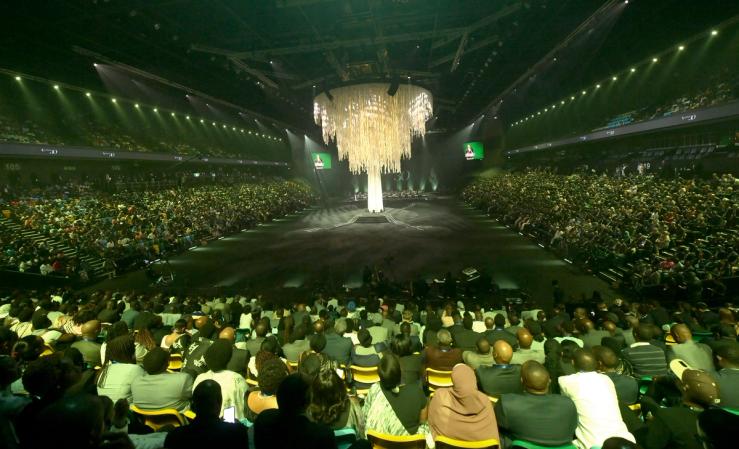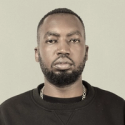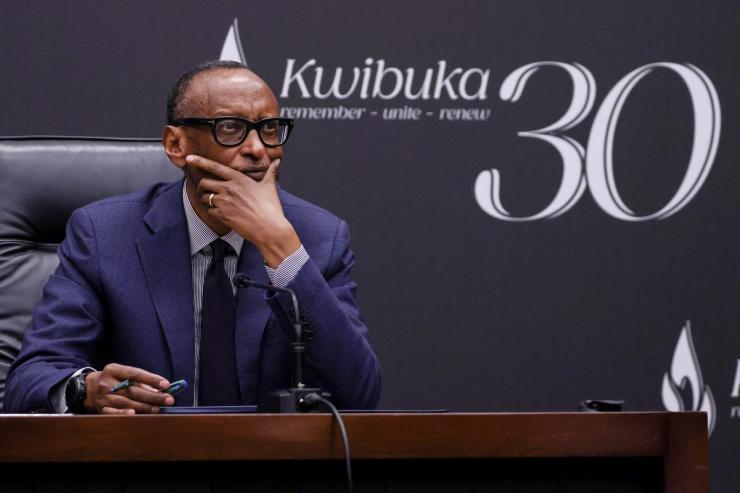The News
Rwanda on Sunday, April 7. began a national week of mourning as it marked the 30-year anniversary of its brutal 1994 genocide. The genocide saw around 800,000 Rwandese, mostly members of the Tutsi ethnic minority, killed.
President Paul Kagame on Sunday called out the international community for its inaction at the time, which he said allowed the genocide to happen. The genocide which lasted over 100 days was triggered by the death of then-President Juvénal Habyarimana, a member of the Hutu ethnic group, whose plane was shot down over Kigali and the Tutsis subsequently blamed. Some moderate Hutus were also killed for protecting the Tutsi minority.
“It was the international community which failed all of us, whether from contempt or cowardice,” Kagame said after lighting a flame of remembrance and laying a wreath at a memorial site in Kigali. The event was attended by, among others, former U.S. President Bill Clinton, who was in office during the genocide.
In this article:
The View From the International Community

In his message, French President Emmanuel Macron acknowledged the failure of the international community to stop the genocide. Macron said in a statement that France, which was Rwanda’s closest European ally the time, and its allies in Africa and the West “could have stopped” the genocide but lacked the will to do so.
Numerous other global leaders reflected on the genocide to mark the anniversary, including U.S. President Joe Biden who said the “pain and loss” would never be forgotten. United Nations secretary general Antonio Gutteres in his message highlighted the role of hate speech that preceded the genocide in Rwanda, drawing parallels with the modern day.
“Today, around the world, the darkest impulses of humanity are being awakened once more by the voices of extremism, division and hate,” he said.
Sustained economic growth in the past two decades has made Rwanda a darling of many around the world, with some considering it a model worth emulating in other African countries. Critics, however, question Kagame’s human rights record and treatment of political dissenters.
Know More
Several leaders from around the world faced criticism from Rwandans online over their wording of statements on the genocide, with a section of Rwandans demanding that it be specifically referred to as the genocide against Tutsis. Among them was U.S Secretary of State Anthony Blinken, who was criticized for his statement on X.
“I think the bigger issue here is the feeling among some (in Rwanda) that the world doesn’t always understand or properly contextualize things when talking about Rwanda, whether its discussing the genocide 30 years ago or the ongoing conflict in DRC,” Nairobi-based Rwandese journalist Lauren Ingabire told Semafor Africa. She said the ongoing conflict in mineral-rich eastern DR Congo in particular, had reinforced sentiments against key members of the international community, especially the West.
Rwanda has been roundly slammed for backing M23, one of numerous armed groups battling for control of lucrative trade routes and mines in the region. Rwanda, however, accuses the DRC of supporting Hutu elements opposed to Kagame’s administration.
“The fact that the U.S and France have said Rwanda-backed militia are involved in this conflict, especially when the Rwandan government insists its only involvement in DRC is to protect these historically targeted groups, can fuel an us vs them mentality,” Ingabire said.
After meeting South African President Cyril Ramaphosa, whose troops were recently deployed to the DRC to lead a multinational force, Kagame on Monday, April 8 drew parallels between the conflict and the genocide as he cautioned against negative ethnic politics.
He said there were “too many actors, even some from Africa, getting directly involved as tribal politics is given renewed prominence, and ethnic cleansing is prepared and practiced”.
“What has happened to us? Is this the Africa we want to live in? Is this the kind of world we want?” he posed. Kagame and Ramaphosa expressed support for a political solution to the conflict in Eastern DRC as opposed to military action.


